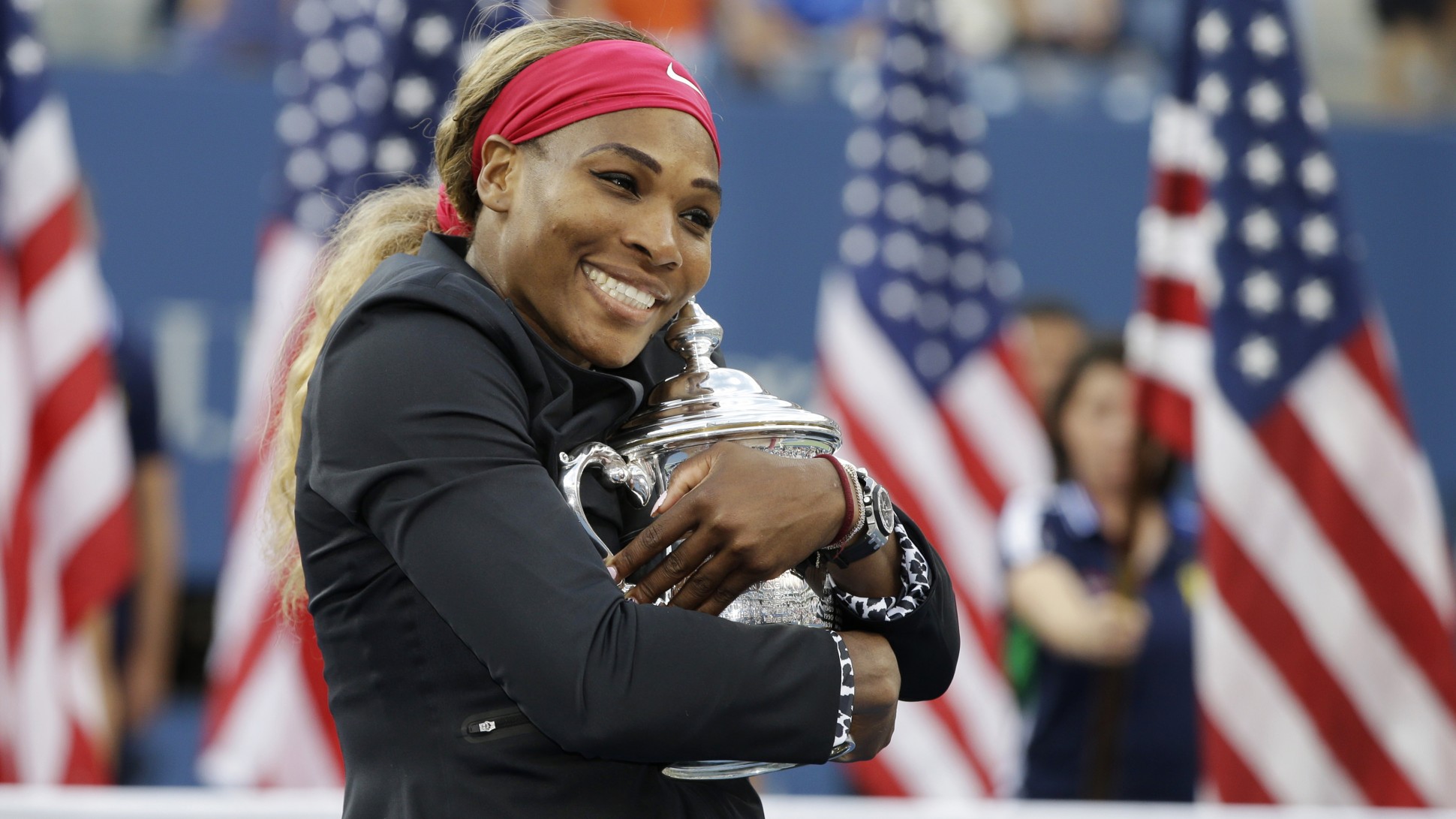
Serena Williams is pregnant. She does not have an incurable disease.
I feel the need to clarify this because, given some of the reactions to her announcement Wednesday that she’s expecting her first child, you might not know the difference.
“Game over for Serena Williams?” intoned one headline.
“Will Baby Slow Down Her Tennis Career?” blared another.
Even Tracy Austin, who ought to know better as both a mother and Grand Slam champion herself, fretted about Williams’ future interest in the game.
“Will she have enough motivation when she sees that little one?” Austin said on the Tennis Channel. “She’s already done so much, does she need more?”
Funny, I don’t remember anyone writing off Roger Federer when he and his wife had their twin girls. Or, five years later, their twin boys. Or asking Tom Brady how he was going to muster up the motivation to return to football after becoming a father.
It’s quite the contrary, actually. When male athletes have children, the storyline is usually about how having kids has helped their careers by giving them added motivation and focus. Why does anyone still think it’s different for female athletes?
Because it’s not.
“Obviously, being an elite athlete is a new lifestyle from 50 years ago,” said Alysia Montano, who ran at the U.S. championships when she was eight months pregnant, then won the 600-meter indoor title six months after having her daughter.
“But we’re finding out what being a career woman and a mother looks like and there are so many avenues. We have that opportunity and we are capable,” Montano added. “We are so much more than able.”
Yes, having a baby changes a woman’s body in ways she can’t imagine until she’s gone through it, and it takes time to recover. But studies have shown pregnancy can actually make women stronger, both mentally and physically, and there is ample anecdotal evidence to back that up.
Paula Radcliffe won the New York Marathon less than a year after having her first child. Sydney Leroux became the latest of the U.S. women’s “soccer moms” last weekend, scoring in her first game in almost two years. Kim Clijsters won three of her four Grand Slam titles after having her first child.
Heck, Kerri Walsh Jennings won her third consecutive Olympic gold medal in beach volleyball while pregnant with her third child. Pick a sport, any sport, and you will find women who resumed their careers after having children.
And there’s no reason they shouldn’t. But the double standard, that insistence on treating women as if it’s 1950 rather than 2017, persists.
“I don’t know why we do that to women and men don’t get that same sort of backlash,” Montano said. “I can be just as ambitious and driven as I was before. I didn’t all the sudden turn off this person who existed for 28 years before I had (my daughter).”
Williams has spent her entire career taking a wrecking ball to the stereotypes that limit and diminish women, female athletes in particular. She is strong. She is powerful. She is fierce. She takes a backseat to no one and makes no apologies for it.
She has won 10 of her 23 Grand Slam titles since turning 30, an age that used to be the death knell for a female tennis player’s career. She overcame blood clots in her lungs, a condition that could have killed her.
And in January, Williams won the Australian Open while she was in her first trimester — by all accounts, the most miserable time in a pregnancy. Never dropped a set on her way to the title, either, and had to beat big sister Venus in the final.
If Williams wants to resume playing after she has her baby, and her publicist made it clear she most definitely does, woe to anyone who suggests otherwise.
A baby brings challenges for any new parent. Having to prove she’s as good or committed an athlete as she was before should not be one of them.
By Nancy Armour
This article was republished with permission from the original author and 2015 Ronald Reagan Media Award recipient, Nancy Armour, and the original publisher, USA Today. Follow columnist Nancy Armour on Twitter @nrarmour.